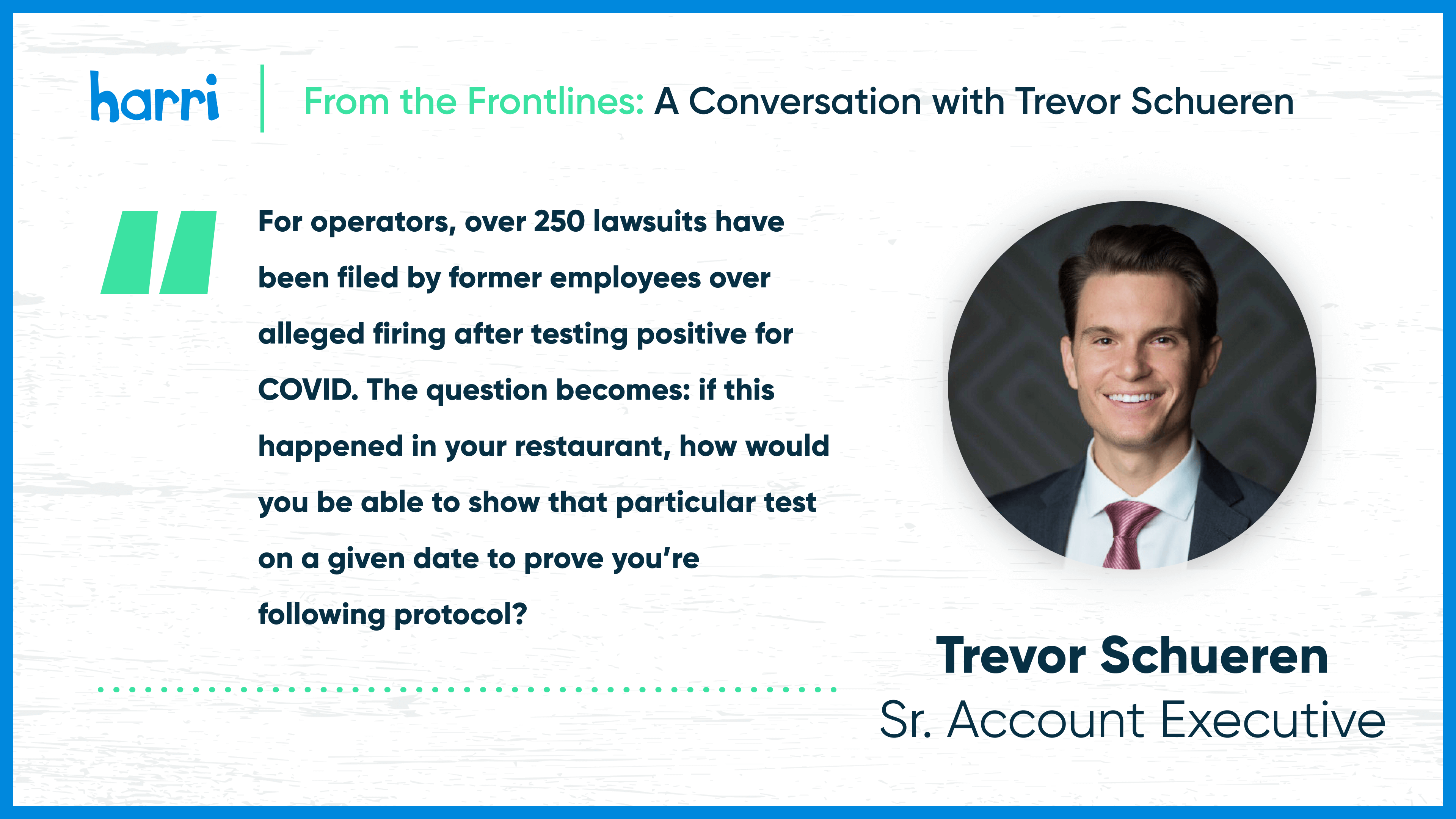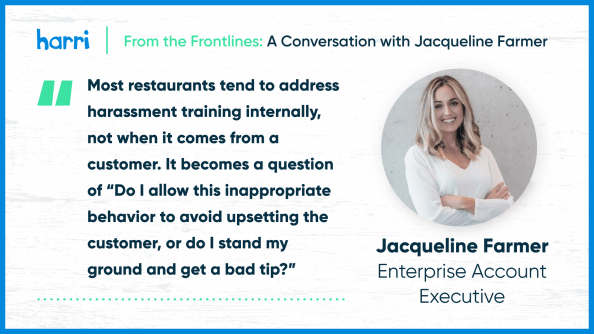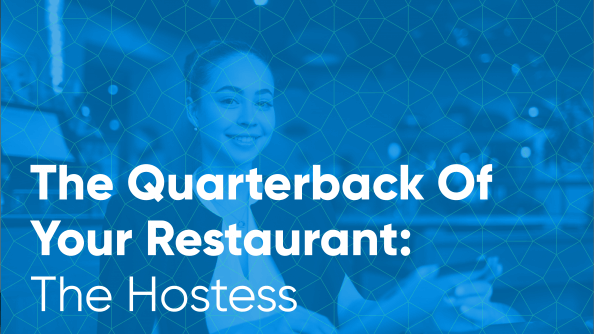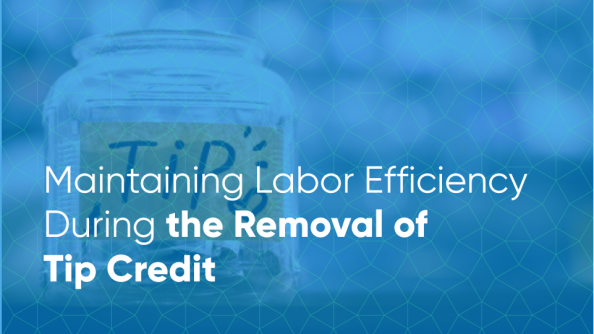From the Frontlines: A Conversation With Trevor Schueren

- By Harri Insider Team | July 1, 2020
In this series, Harri is highlighting members of our team who are up to big things and have big insights. This week we have Trevor Schueren, Senior Account Executive at Harri, discussing the market happenings he is seeing. As restaurants and bars across the country reopen, we’re discussing the real health and safety challenges that come with it.
Q: So Trevor, as someone who deals with large and enterprise clients on enhancing the employee experience, how do you see these reopenings and case numbers increasing affecting employee health?
A: Many employees don’t have access to healthcare so they don’t want to risk their own health and safety for a paycheck. In Michigan for instance, employees are lobbying local officials to close restaurants until COVID-19 is no longer a public health threat. Employees are so uncomfortable coming into work that they want restaurants shut down entirely. The mental and physical wellbeing of employees needs to be the priority in order for any sort of successful reopening.
Q: What do you think the legal ramifications of not following COVID-19-related health and safety practices are?
A: For operators, over 250 lawsuits have been filed over alleged firing after testing positive for COVID. The question becomes: if this happened in your restaurant, how would you be able to show that particular test on a given date to prove you’re following protocol? Businesses really need to be able to stay on top of these new rules and regulations.
Q: What have you found in regards to adherence? Do you think restaurants are following the health and safety guidelines to the best of their ability?
A: 50% of restaurants in Los Angeles County are not adhering to COVID-19 health requirements. This results in bars closing and restaurants reducing capacity a few weeks after reopening. How many restaurants/bars in Texas, Florida, and Arizona didn’t follow precautions leading to recent closures again there? Too many.
Q: What is the rhetoric on the health and safety requirements for restaurants and bars? What does this mean for the future?
A: This is the biggest cause for concern I have come across. People are particularly struggling with liability and compliance. There is a lot of ambiguity around local, state, and federal requirements. Per a risk management consultant, companies should use government criteria as a minimum baseline and develop their own more stringent criteria. Unfortunately, with so much uncertainty, this means health and safety protocols everywhere look different. People feel as though they are in limbo. Am I in compliance? What happens if we get in trouble? A restaurant in California and a restaurant in New York are adhering to two different sets of requirements, and even then, there may be differences between restaurants on the same street.
I have seen restaurants use plexiglass barriers between tables, at counters, etc. and could see that becoming more of a standard for other restaurants. Restaurants may also start thinking about health screenings requirements for patrons. With information and procedures changing every day, it is likely more of these precautions will be implemented.
Q: What businesses are being impacted by this the most?
A: These regulations are the hardest on casual and fine dining restaurants. Anywhere that relies on table service to create an experience or is brand-driven is having a tough time identifying what works best for them today. For some businesses, 50% capacity is not enough to make money. The cost of food, rent, wages, etc. could not be made up by a capped capacity, which is incredibly limiting. Brand-driven businesses are also having a particularly difficult time transitioning to give customers the same experience.
Q: Since the General Manager position is becoming more difficult, how do Harri’s solutions work to make proving compliance and managing the new regulations easier?
A: At the end of the day, hospitality workers are doing the best they can in the given circumstances. If you’re a General Manager, you don’t necessarily have a healthcare background. Now, GMs are expected to be responsible for health screenings and safety protocols that may go beyond their immediate knowledge and skill set. COVID-19 has changed what it means to be a General Manager, for better or worse. With Harri, we take your manual, pen-and-paper health check system and translate that into a reliable, intelligent, technology-driven practice. Our software helps you with compliance and keep track of information so if there is an issue, it can be quickly and efficiently resolved.




















